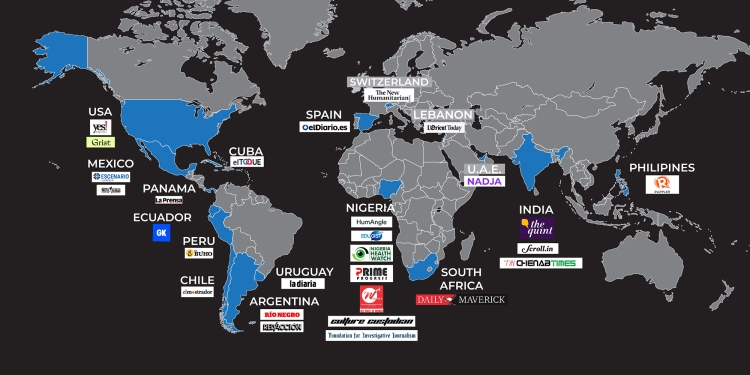Decades of illegal dynamite fishing decimated sea life in the Philippines town of Aroroy. But today – amazingly – the fish and coral are returning.
How?
According to a Rappler news story, the town's residents now make a living as sea wardens, enforcing a fishing ban that “has done wonders” as part of a larger conservation effort.
This story examining an effective solution would have normally stopped there, and reached a mostly Filipino audience. But thanks to the ICFJ-backed Human Journalism Network, it kept going. News outlets in 12 countries republished the piece, showing their readers how one community in the Philippines is making positive change and, perhaps, inspiring them to do the same. "These days, readers are withdrawing from a feed filled with bad news," said Guyot. "We publish constructive stories that make people want to read the news."
That’s what the network founded by Chani Guyot is all about. Guyot, who officially launched the Human Journalism Network as an ICFJ Knight Fellow in 2023, said his goal is to highlight how people are making progress on social challenges in ways that are not only interesting but potentially useful. Guyot is the CEO and publisher of RED/ACCIÓN and the former editor-in-chief at La Nación in Argentina.
Today:
- A total of 28 English- and Spanish-language news outlets from more than 20 countries in Africa, the Americas, Asia and Europe are part of the Human Journalism Network.
- The partners have republished stories like Rappler’s more than 300 times on everything from migration and climate change to health and human rights, garnering more than 1 million page views.

At a time of despairing headlines and major global challenges, these newsrooms are amplifying local solutions of international relevance and diversifying the voices we hear. The stories “should be of interest to our readers who would want to consider if we can apply those lessons here,” said Emilio Garcia-Ruiz, editor of The San Francisco Chronicle, one of the network’s U.S.-based partners.
Shelly Walia, executive editor of The Quint in India, said: “The Human Journalism Network brings together the best of journalism and, more importantly, allows for a wider distribution of those stories. In our current reality, with limited resources, it allows network participants to access stories from far-reaching territories that would otherwise not be possible.”
Moving forward, Chani and his team are looking to expand even more. Please reach out if you are interested.
Amid the challenges we face as an industry and as a world, media trailblazers like Chani give me great hope.